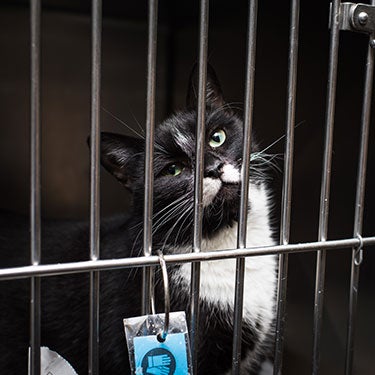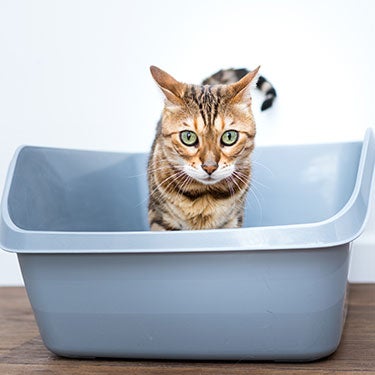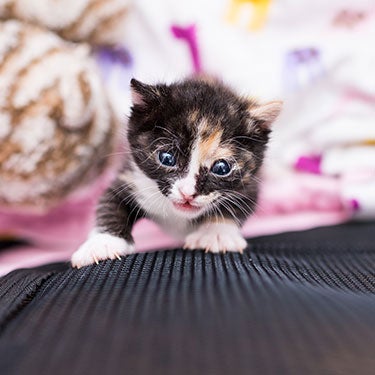Creating the Perfect Home for Kitty
Home is where the purring is.Bringing Kitty to her forever house is so exciting. But you can’t just open the door and expect her to make herself at home. She’ll likely be a little shy, or want to explore everything. And she’ll want to know where her basics are right away: the litterbox, the food, and the bed to hide under. We’ve got some great tips to help you make it the best day ever.
Take it slow.
While you’ll be excited to introduce your new furry friend to your friends and neighbors, it’s best to give kitty some quiet time to adjust to new surroundings. A new cat may take a few weeks to get comfortable with a new home and new schedule.
Keep it simple.
For the first week or two, keep your cat’s diet similar to what he or she received at the shelter. If you want to change to a different brand or flavor, do it slowly over a period of weeks, mixing the old food with the new.
Stage the loo.
Set up the litter box in a quiet, low-traffic area that the cat can always access. Be sure to fill the litter box with 3–4 inches of Fresh Step® litter. Cats need a clean environment and are very fussy about cleanliness, so be sure to clean out solids once a day and clean the rest of the litter according to the package instructions. Leave a nice copy of Cat Fancy™ next to the box for those longer sessions.
Make sure kitty loves her litterbox.
Kitty’s box should be just right for her. That means the right size (one and a half the size of her body), whether she likes covered or uncovered, and have the right number of litterboxes in the right places. Think inside the box with our Choosing the Best Litterbox for Your Cat article.
Kitty-proof the house.
Before letting your feline friend loose in the house, be sure to put away any potentially harmful things like cleaning products, medication and any poisonous household items or plants. We’ve got more details in our Kitty-Proofing Your House article.
Take kitty to the vet.
Bring your new cat to a caring vet for a wellness exam within one week of adoption. Cats typically should be seen by vets annually in order to keep up with vaccines and other preventive care.




